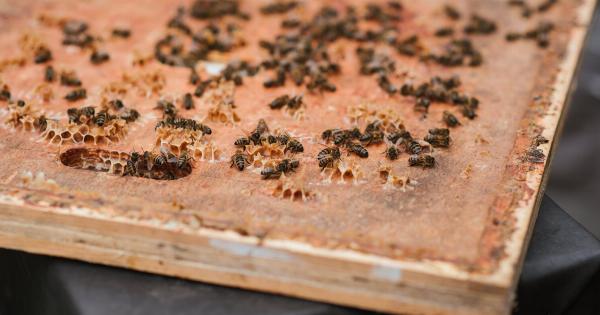Pregnancy is a beautiful journey that brings immense joy and anticipation. However, it also comes with the responsibility of taking care of both the mother’s health and that of the growing baby.
Proper nutrition plays a crucial role in ensuring a healthy pregnancy and the development of a strong and vibrant baby. In this comprehensive guide, we will explore the essential foods and nutrients that every expecting mother should include in her diet.
The Importance of a Balanced Diet
During pregnancy, a woman’s body goes through numerous hormonal and physical changes. These changes increase the body’s nutritional requirements to support the growth and development of the baby.
A balanced diet is essential to provide the necessary vitamins, minerals, and macronutrients that promote healthy fetal development and prevent complications.
Protein-Rich Foods
Protein is one of the most critical nutrients during pregnancy as it aids in the development of the baby’s organs, muscles, and tissues.
Pregnant women should consume lean sources of protein such as lean meat, poultry, fish, eggs, legumes, and dairy products. It is recommended to consume about 75-100 grams of protein per day.
Folate and Folic Acid
Folate, or folic acid in its synthetic form, is vital for the early development of the baby’s neural tube, which later becomes the brain and spinal cord.
Including foods rich in folate, such as leafy green vegetables, citrus fruits, beans, and fortified grains, can help prevent neural tube defects and other birth abnormalities. Additionally, pregnant women should take a prenatal supplement containing folic acid as recommended by their healthcare provider.
Calcium for Strong Bones and Teeth
Calcium is essential for the development of the baby’s bones and teeth. Expecting mothers should aim to consume at least 1000-1300 milligrams of calcium daily.
Good sources of calcium include dairy products like milk, cheese, and yogurt, as well as fortified plant-based milk, tofu, and leafy green vegetables like spinach and kale.
Iron-Rich Foods for Blood Production
Iron is a crucial nutrient during pregnancy as it helps in the production of red blood cells to support the increased blood volume required. Iron deficiency can lead to anemia, which can have adverse effects on both the mother and baby.
Iron-rich foods include lean red meat, poultry, fish, spinach, lentils, fortified cereals, and beans. Pairing iron-rich foods with vitamin C-rich foods can enhance iron absorption.
Omega-3 Fatty Acids
Omega-3 fatty acids play a vital role in the development of the baby’s brain and eyes. They also help prevent preterm labor and promote healthy birth weight.
Including fatty fish like salmon, sardines, and trout in the diet can provide an abundant source of omega-3 fatty acids. Vegetarian sources include walnuts, flaxseeds, and chia seeds. It is crucial to limit the intake of predatory fish due to their high mercury content.
Healthy Fats
Healthy fats are essential during pregnancy as they provide energy and aid in the development of the baby’s brain and nervous system. Avocados, olive oil, nuts, and seeds are excellent sources of healthy fats.
Including these foods in moderation can greatly contribute to a well-rounded diet.
Hydration is Key
Staying hydrated is essential during pregnancy to support the increased blood volume and aid in digestion and nutrient absorption.
Drinking an adequate amount of water, at least 8-10 glasses per day, can also help prevent common discomforts like constipation and swelling.
Avoid Unhealthy Foods
During pregnancy, it is essential to prioritize the consumption of nutrient-dense foods and avoid those that may pose a risk to the mother or baby’s health.
Raw or undercooked meats, deli meats, unpasteurized dairy products, certain types of fish (high in mercury), and excessive caffeine should be avoided to reduce the risk of foodborne illnesses and developmental issues in the baby.
Listen to Your Body and Seek Professional Guidance
Every pregnancy is unique, and the nutritional needs may vary from woman to woman. It is crucial to listen to your body and seek professional guidance from your healthcare provider or a registered dietitian.
They can provide personalized recommendations based on your medical history, dietary preferences, and specific needs.
In Conclusion
Proper nutrition during pregnancy is of utmost importance for the health and well-being of both the mother and baby.
By following a balanced diet that includes a variety of nutrient-rich foods, pregnant women can ensure optimal fetal development, reduce the risk of complications, and maintain their own well-being throughout this incredible journey.






























